Farm Boy 牧場の少年 from Final Fantasy VII ファイナルファンタジーVII with sheet music
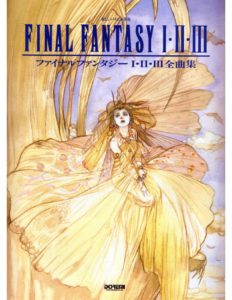
Sheet Music download here.
Music of the Final Fantasy VII series
Final Fantasy VII is a role-playing video game developed by Square (now Square Enix) and published by Sony Computer Entertainment as the seventh installment in the Final Fantasy series. Released in 1997, the game sparked the release of a collection of media centered on the game entitled the Compilation of Final Fantasy VII.
The music of the Final Fantasy VII series includes not only the soundtrack to the original game and its associated albums, but also the soundtracks and music albums released for the other titles in the collection.
The first album produced was Final Fantasy VII Original Soundtrack, a compilation of all the music in the game. It was released as a soundtrack album on four CDs by DigiCube in 1997. A selection of tracks from the album was released in the single-disc Reunion Tracks by DigiCube the same year. Piano Collections Final Fantasy VII, an album featuring piano arrangements of pieces from the soundtrack, was released in 2003 by DigiCube, and Square Enix began reprinting all three albums in 2004. To date, these are the only released albums based on the original game’s soundtrack, and were solely composed by regular series composer Nobuo Uematsu; his role for the majority of subsequent albums has been filled by Masashi Hamauzu and Takeharu Ishimoto.
The Compilation of Final Fantasy VII began eight years after the release of Final Fantasy VII with the release of the animated film sequel Advent Children in 2005. The soundtracks for each of the titles in the collection are included in an album, starting with the album release of the soundtrack to Advent Children that year. The following year, Nippon Crown released a soundtrack album to correspond with the video game Dirge of Cerberus, while Square Enix launched a download-only collection of music from the multiplayer mode of the game, which was only released in Japan. After the launch of the game Crisis Core in 2007, Warner Music Japan produced the title’s soundtrack. The latest album in the collection, Before Crisis: Final Fantasy VII & Last Order: Final Fantasy VII Original Soundtrack, was released by Square Enix the same year as a combined soundtrack album for the game Before Crisis and the animated movie Last Order.
The original music received highly positive reviews from critics, who found many of the tunes to be memorable and noted the emotional intensity of several of the tracks. The reception for the other albums has been mixed, with reactions ranging from enthusiastic praise to disappointment. Several pieces from the soundtrack, particularly “One-Winged Angel” and “Aeris’ Theme”, remain popular and have been performed numerous times in orchestral concert series such as Dear Friends: Music from Final Fantasy and Tour de Japon: Music from Final Fantasy. Music from the Original Soundtrack has been included in arranged albums and compilations by Square as well as outside groups.
Browse in the Library:
| Artist or Composer / Score name | Cover | List of Contents |
|---|---|---|
| The jazz style of John Coltrane – David N. Baker |
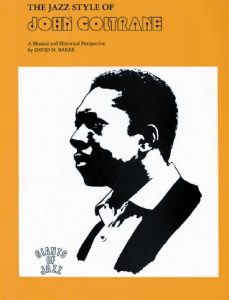 |
|
| The Jazz Tradition by Martin Williams (1993) |
 |
|
| The Joe Pass Collection with Tablature |
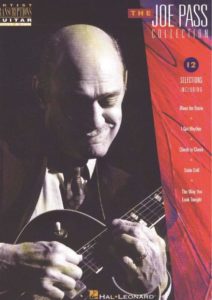 |
The Joe Pass Collection |
| The John Coltrane companion by Carl Woideck |
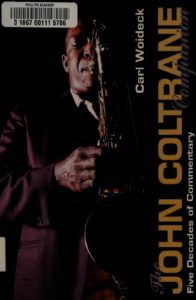 |
|
| The John Dunbar Theme – John Barry (Musescore File).mscz | ||
| The Joy Of Baroque Music |
 |
|
| The Joy Of Boogie And Blues |
 |
The Joy Of Boogie And Blues |
| The Joy Of Boogie And Blues Book 2 |
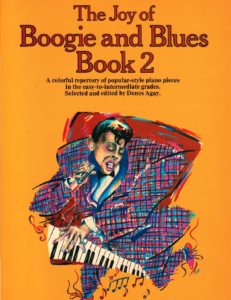 |
Boogie And Blues. Book 2 The Joy Of |
| The Joy Of Christmas – The Best loved Carols, Hymns, songs and solos |
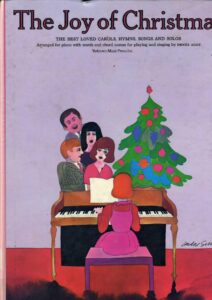 |
The Joy Of Christmas – The Best loved Carols, Hymns, songs and solos |
| The Joy Of Classics Collection Of Easy Classical Piano Pieces |
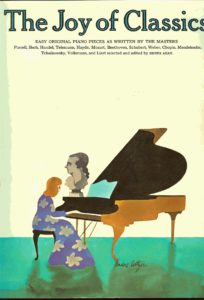 |
The Joy Of Classics Collection Of Easy Classical Piano Pieces |
| The Joy Of Disney – Easy Piano Songbook |
 |
The Joy Of Disney – Easy Piano Songbook |
| The Joy Of First Classics – Easy pieces – Easy Piano Songbook |
 |
The Joy Of First Classics – Easy pieces – Easy Piano Songbook |
| The Joy Of First Year Piano Music |
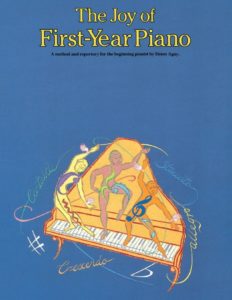 |
|
| The Joy of First-Year Piano by Denes Agay (Easy piano, piano facile) |
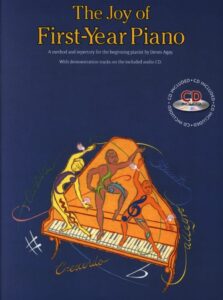 |
The Joy of First-Year Piano by Denes Agay (Easy piano, piano facile) |
| The Joy Of French Piano Music |
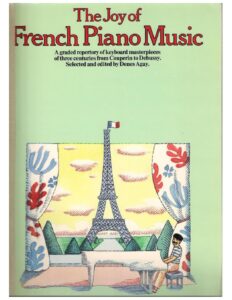 |
The Joy Of French Piano Music |
| The joy of George Gershwin |
 |
The joy of George Gershwin |
| The Joy Of Italian Melodies – Easy Piano Songbook |
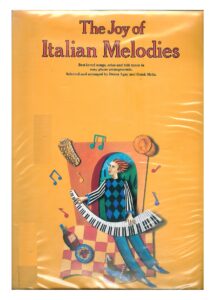 |
The Joy Of Italian Melodies – Easy Piano Songbook |
| The Joy Of Jazz (Easy to Medium Grade Piano Solos) |
 |
The joy of Jazz |
| The Joy Of Modern Blues |
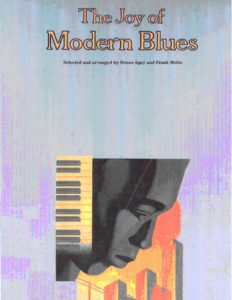 |
The Joy Of Modern Blues |
| The Joy Of Modern Piano Music (20th century classical music) |
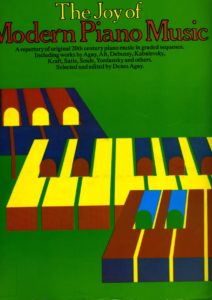 |
The Joy Of Modern Piano Music (20th century classical music) |
| The Joy Of More Classical Music |
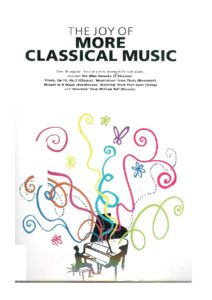 |
The Joy Of More Classical Music |
| The Joy of Music – Bernstein, Leonard 1918-1990 (Book) |
 |
|
| The Joy Of Piano Duets |
 |
The Joy Of Piano Duets |
| The Joy Of Piano Entertainment Piano Solo selected by Denes Agay |
 |
The Joy Of Piano Entertainment Piano Solo selected by Denes Agay |
| The Joy Of Pop Tunes – Easy Piano Songbook |
 |
The Joy Of Pop Tunes – Easy Piano Songbook |
| The Joy Of Recital Time Piano Solo selected by Denes Agay |
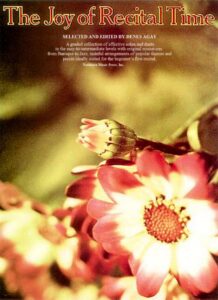 |
The Joy Of Recital Time Piano Solo selected by Denes Agay |
| The Joy Of Russian Piano Music |
 |
|
| The Joy Of Sonatinas – Easy Piano Songbook |
 |
The Joy Of Sonatinas – Easy Piano Songbook |
| The Jungle Book Soundtrack Disney |
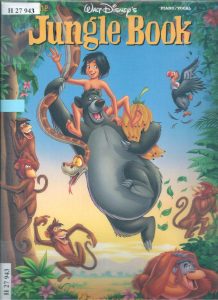 |
The Jungle Book Soundtrack |
| The Keyboard Music Of Bach J.S. by David Schulenberg (eBook) |
 |
|
| The Killers – All These Things That I’ve Done Sheet Music |
 |
|
| The Killers – Mr Brightside Sheet Music |
 |
|
| The Killers – Shot At The Night Sheet Music |
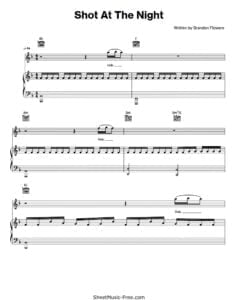 |
|
| The Killers – Somebody Told Me Sheet Music |
 |
|
| The Killers – When You Were Young Sheet Music |
 |
|
| The Killers – Human (sheet music with guitar chords) |
 |
|
| The Killers Day & Age |
 |
The Killers Day & Age |
| The King And I – A Musical Play Piano Vocal Score by Rodgers and Hammerstein II | The King And I – A Musical Play Piano Vocal Score by Rodgers and Hammerstein II | |
| The Kinks Guitar Legends Songbook With Tablature TABs |
 |
The Kinks Guitar Legends Songbook With Tablature TABs |
| The Lang Lang Piano Method Level 1 (Lang Lang) |
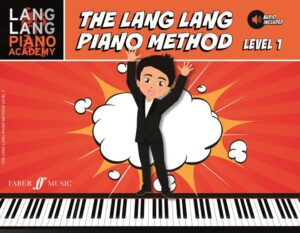 |
|
| The Lang Lang Piano Method Level 2 (Lang Lang) |
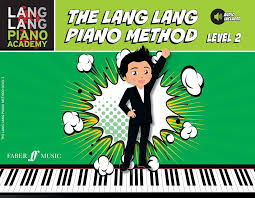 |
|
| The Lang Lang Piano Method Level 3 (Lang Lang) |
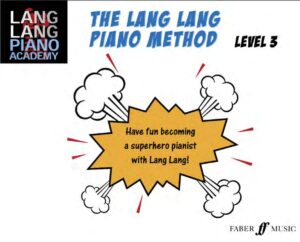 |
|
| The Lang Lang Piano Method Level 4 (Lang Lang) |
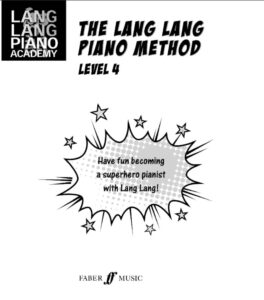 |
|
| The Lang Lang Piano Method Level 5 (Lang Lang) |
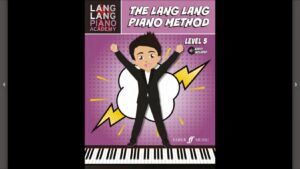 |
|
| The Lark Ascending (Musescore File).mscz | ||
| The Last 5 Years Songbook Movie Vocal Selections (Jason Robert Brown) Piano Vocal Guitar |
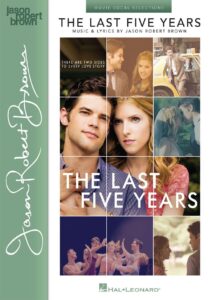 |
The Last 5 Years Songbook Movie Vocal Selections (Jason Robert Brown) Piano Vocal Guitar |
| The Last Of The Mohicans (Main Theme) by Trevor Jones | The Last Of The Mohicans (Main Theme) by Trevor Jones | |
| The Last Of Us Piano Medley (Musescore File).mscz | ||
| The Last of Us – Main Theme Guitar arr. sheet music with TABs |
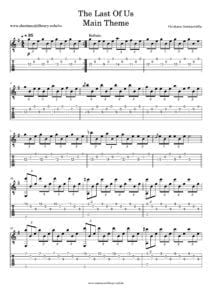 |
|
| The Last of Us -All Gone (Aftermath) Gustavo Santaolalla (Easy Piano Solo arr.) |
 |
|
| The Last Of Us -All Gone (Aftermath) Gustavo Santaolalla (Easy Piano Solo Arr.) (Musescore File).mscz | ||
| The Last Of Us Main Theme Guitar (Musescore File).mscz | ||
| The Last Of Us Theme by Gustavo Santolalla (Piano Game Sheet Music) | The Last Of Us Theme by Gustavo Santolalla (Piano Game Sheet Music) | |
| The Last Run (Jerry Goldsmith) | ||
| The Legend Of The Wind Nausicaa Of The Valley Of The Wind |
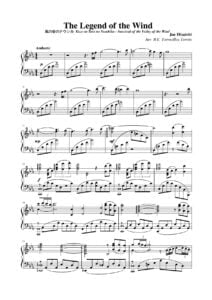 |
|
| The Legend of Zelda Overworld music Konchan | ||
| The Legend of Zelda – Great Fairy Fountain |
 |
|
| The Legend Of Zelda Main Theme Kondo Koji (Musescore File).mscz | ||
| The Legend Of Zelda Series For Easy Piano |
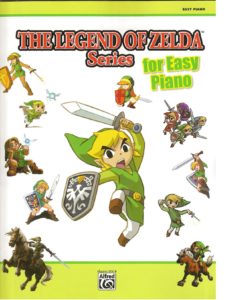 |
|
| The Legend of Zelda Twilight Princess – Midnas Theme | ||
| The Lennon Companion – Book (2004) by E. Thomson & D. Gutman – John Lennon’s Biography |
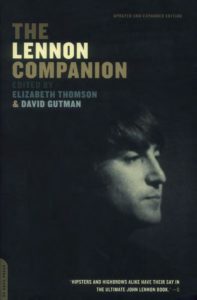 |
|
| The Library Of Easy Piano Classics Vol. 1 |
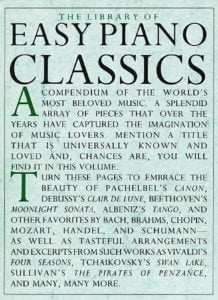 |
The Library Of Easy Piano Classics, Vol.1 |
| The Library Of Easy Piano Classics Vol. 2 |
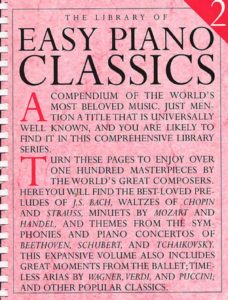 |
The Library Of Easy Piano Classics Vol 2
 |
| The Life And Music Of Charlie Parker bird by Chuck Haddix (Book) Biography |
 |
|
| The Light Between Oceans Isabel Alexandre Desplat – Isabel Sheet Music |
 |
|
| The Light In The Piazza 2005 Tony Award Winner by Adam Guettel Piano Vocal |
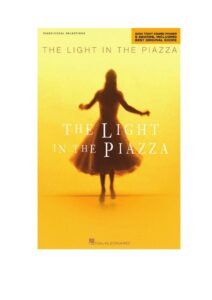 |
The Light In The Piazza 2005 Tony Award Winner by Adam Guettel Piano Vocal |
| The Lion King – Broadway selections – Elton John |
 |
The Lion King – Broadway selections – Elton John |
| The Lion King – Can You Feel The Love Tonight – Elton John | Elton John – Can You Feel The Love Tonight | |
| The Lion King – Circle Of Life – Elton John | Elton John Circle of life- | |
| The Lion King – Piano Elton John |
 |
|
| The Lion King (The Musical)- Piano Vocal (Full Conductor’s Score) | The Lion King (The Musical)- Piano Vocal (Conductor’s Score) | |
| The Lion King Disney’s – Original songs |
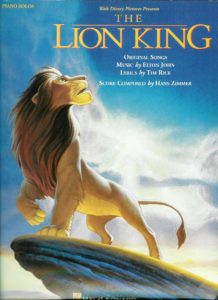 |
The Lion King Disney’s – Original songs |
| The Lion King The Musical Full Score Hans Zimmer, Elton John, Tim Rice |
 |
|
| The Little Mermaid She’s In Love (Disney) |
 |
|
| The Little Mermaid Broadway Score |
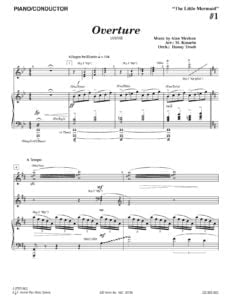 |
|
| The Little Mermaid Disney’s Sheet Music Book |
 |
The Little Mermaid Disney’s Sheet Music Book |
| The Living Sculptures of Pemberley from Pride and Prejudice | The_Living_Sculptures_of_Pemberley_from_Pride_and_Prejudice | |
| The Longest Night (Mother’s Boys OST) Clair Marlo | ||
| The Look Of Love – Burt Bacharach (Musescore File).mscz | ||
| The Lord of the Rings The Return of the King Minas Tirith | Lord of the Rings – The Return of the King.PDF | |
| The Lord Of The Rings The Return Of The King Howard Shore Viggo Mortensen |
 |
|
| The Lord of the Rings (Howard Shore) Symphonic Suite |
 |
|
| The Lord Of The Rings Complete Score Howard Shore |
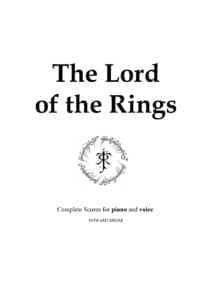 |
The Lord Of The Rings Complete Score Howard Shore |
| The Lord of the Rings sheet music Piano & Vocal |
 |
 |
| The Lumineers Songbook (The Lumineers) with Guitar TABs by Jeremy Fraire and Wesley Schultz |
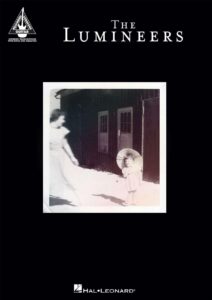 |
The Lumineers Songbook (The Lumineers) with Guitar TABs by Jeremy Fraire and Wesley Schultz |
| The Making Of Kind Of Blue Miles Davis And His Masterpiece (Book) |
 |
|
| The Mandalorian Music From The Disney Original Series (Star Wars) Piano Solo |
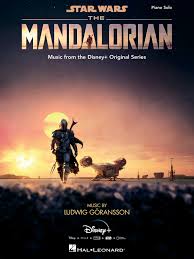 |
The Mandalorian Music From The Disney Original Series (Star Wars) Piano Solo |
| The Manhattan Transfer Bodies And Souls |
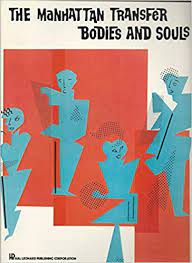 |
 |
| The Manhattan Transfer Songbook |
 |
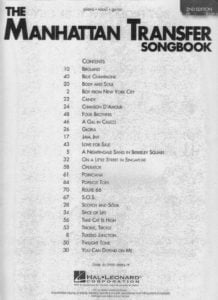 |
| The many Crimes of Cain (To Kill a Priest OST) Georges Delerue & Joan Baez |
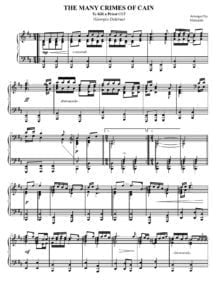 |
|
| The Moody Blues – Nights in White Satin | The Moody Blues – Nights in White Satin | |
| The Moody Blues – Nights in White Satin (Easy Piano Solo sheet music) |
 |
|
| The most requested LDS songs from the inspirational Music Showcase |
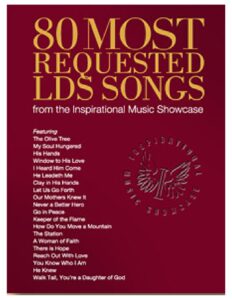 |
80 Most Requested LDS Songs (Mormon music) |
| The Mostly Mozart Guide To Mozart by Carl Vigeland (eBook) |
 |
|
| The Mummy (Jerry Goldsmith) | ||
| The Museum – Paper Mario The Origami King (Musescore File).mscz | ||
| The Music Effect Music Physiology And Clinical Applications (Book) |
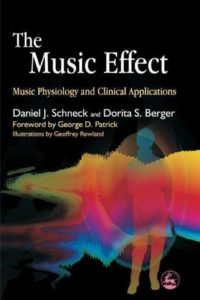 |
|
| The Music Lesson A Spiritual Search For Growth Through Music Victor L. Wooten (Book) |
 |
|
| The Music Of Bela Bartok A Study Of Tonality And Progression In Twentieth Century Music (Elliott Antokoletz) Book |
 |
|
| The Music Of Francisco Tarrega (Guitar) |
 |
The Music Of Francisco Tarrega (Guitar) |
| The Music Of Joni Mitchell (Book) by Lloyd Whitesell |
 |
The Music Of Joni Mitchell |
| The Musician, A Guide For Pianoforte Students Grade 6 (By Thomas Ridley Prentice) (1886) |
 |
|
| The New Illustrated Treasury Of Disney Songs |
 |
The New Illustrated Treasury Of Disney Songs |
| The New Real Book Vol 1 – Jazz Classics |
 |
The New Real Book Vol 1 – Jazz Classics, Choice Standard, Pop Fusion Classics CONTENTS |
| The New Real Book Vol 2 |
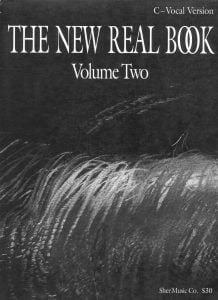 |
The New Real Book 2 contents |
| The New Real Book Vol 3 – Jazz Classics – The Blue note era & swing era |
 |
The New Real Book 3 contents |
| The Nightmare Before Christmas – Jack And Sally Montage – Danny Elfman | ||
| The Nightmare Before Christmas – Jacks Lament |
 |
|
| The Nightmare Before Christmas – Sallys Song |
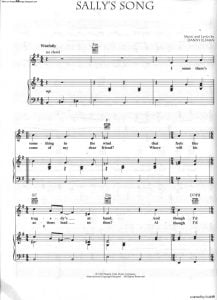 |
|
| The Nightmare Before Christmas – This Is Halloween (Musescore File).mscz | ||
| The Offspring with MP3 audio tracks Guitar Play-Along Vol 32 with TAB |
 |
 |
| The Offspring Ixnay On The Hombre |
 |
The Offspring Ixnay On The Hombre |
| The Offspring Smash |
 |
The Offspring Smash |
| The Omen – The Piper Dreams – Goldsmith (Musescore File).mscz | ||
| The Omen – The Piper Dreams – Jerry Goldsmith Sheet Music Pdf |
 |
|
| The Organ Music Of Bach J.S. by Peter Williams (eBook) |
 |
|
| The Origins Of Music (Book) BY Nils L. Wallin, Bjorn Merker, Steven Brown |
 |
|
| The Passion of Our Lord Eugene Butler (for SATB Choir & organ or piano) |
 |
The Passion of Our Lord Eugene Butler (Choir SATB) |
| The Peanuts Christmas Carol Collection Big Note Very Easy Piano |
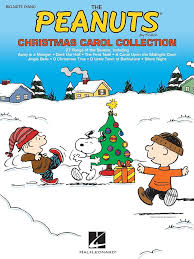 |
The Peanuts Christmas Carol Collection Big Note Very Easy Piano |
| The Phantom Of The Opera – All I Ask Of You |
Creation and development

Final Fantasy VII was scored by the series’ main composer Nobuo Uematsu
Nobuo Uematsu composed the music of Final Fantasy VII in less than one year, matching the game’s development time, although he had taken two years to create the soundtrack for the previous title, Final Fantasy VI. Final Fantasy VII was the first game in the series to be developed for the PlayStation, and while the media capabilities of the console allowed for pre-recorded Linear PCM (often as Red Book audio tracks on the CD), it was decided to generate the music in real time on the console instead, using samples and note data. This decision has been credited as giving the soundtrack “a very distinctive mood and feel”, forming a strong association for listeners between the game and its soundtrack.
Uematsu had initially planned to use vocal performances for the game to take advantage of the console’s capabilities, but found that the advanced audio quality required in turn made the game have much longer loading times in each area. Uematsu decided that the quality was not worth the effects on gameplay, though after the release and seeing Suikoden II (1998, PlayStation), which had used higher-quality music instead, he reversed his stance for Final Fantasy VIII. There was a plan to use a “famous vocalist” for the ending theme to the game as a “theme song” for the game, but time constraints and thematic concerns, caused the idea to be dropped. Uematsu has stated, however, that the move into the “PlayStation era”, which allowed video game composers to use sounds recorded in the studio rather than from synthesizers, had “definitely been the biggest change” to video game music.
Uematsu’s approach to composing the game’s music was to treat it like a film soundtrack and compose songs that reflected the mood of the scenes rather than trying to make strong melodies to “define the game”, as he felt that approach would come across too strong when placed alongside the game’s new 3D visuals. As an example, he composed the track intended for the scene in the game where Aerith Gainsborough is killed to be “sad but beautiful”, rather than more overtly emotional, creating what he feels is a more understated feeling. Uematsu has additionally said that the soundtrack has a feel of “realism”, which also prevented him from using “exorbitant, crazy music”.
The first piece that Uematsu composed for the game was the opening theme; game director Yoshinori Kitase showed him the opening cinematic to the game and asked him to begin the project there. The track was well received in the company, which gave Uematsu “a sense that it was going to be a really good project”. He later stated in the liner notes for the soundtrack album that the music for Final Fantasy VII was his “greatest harvest” to date.
Final Fantasy VII was the first game in the series to include a track with digitized vocals, “One-Winged Angel”. The track has been called Uematsu’s “most recognizable contribution” to the music of the Final Fantasy series, though the composer did not expect it to gain such popularity. The piece, described as “a fanfare to impending doom”, is said to not “follow any normal genre rules” and has been termed “possibly the most innovative idea in the series’ musical history”.
Uematsu approached the piece, which accompanies the final battle of the game, in a different manner than previous “boss tracks”: as he felt that using his normal approach would cause unfavorable comparisons to his well-received Final Fantasy VI boss tracks, he instead tried to take a different approach. Inspired by The Rite of Spring by Igor Stravinsky to make a more “classical” track, and by rock and roll music from the late 1960s and early 1970s to make an orchestral track with a “destructive impact”, he spent two weeks composing short unconnected musical phrases, and then arranged them together into a song, an approach he has never used before or since.
The lyrics of “One-Winged Angel”, a Latin choral track that plays at the climax of the game, were taken from the medieval poetry that forms the basis of Carl Orff‘s Carmina Burana, specifically “Estuans Interius”, “O Fortuna“, “Veni, Veni, Venias” and “Ave Formosissima”. Uematsu has stated that the intro of “One-Winged Angel” is based on Jimi Hendrix‘s “Purple Haze“, that the piece revolves around the image of Sephiroth, and that despite the chorus and orchestra, he still thinks of it as a “rock piece”. He said in a 2005 interview that “One-Winged Angel” is his favorite tune from the soundtrack, and in 2004 that it was his favorite battle theme from any Final Fantasy game.
Final Fantasy VII Albums
Original Soundtrack
Final Fantasy VII Original Soundtrack is a soundtrack album containing musical tracks from the game, composed by Nobuo Uematsu and produced by Uematsu and Minoru Akao. It was originally released on February 10, 1997 through DigiCube and later reissued directly by Square Enix on May 10, 2004. The soundtrack spans 85 tracks over four discs and has a combined duration of 4:39:53. A limited edition was produced along with the original album, containing illustrated liner notes with several pictures of Uematsu’s workspace and personal effects, various cutscenes and in-game screenshots from the game, and a discography.
The soundtrack covers a wide variety of musical genres, including rock, techno, orchestral, and choral, although the soundtrack as a whole is primarily orchestral. While many of the tracks were intended as background music, reviewers noted the emotional intensity of several tracks, especially “Aerith’s Theme”, which plays during a moment described as “the most shocking moment in video games,” and has been described as the most memorable track from the album. The theme has become popular among fans, and has inspired various arrangements. Other notable tracks include “Main Theme of Final Fantasy VII”. Themes from this track play during several other tunes from the soundtrack, such as “Words Drowned by Fireworks”, to tie the soundtrack together.
The regular edition of the album reached No. 3 on the Japan Oricon charts, while the limited edition reached No. 19. Overall, the album sold 148,000 copies as of January 2010, with the limited edition selling a further 21,000. The album was well received by critics. Allmusic awarded Uematsu’s original soundtrack a five-star rating.
Ben Schweitzer of RPGFan claimed that “for the most part, it’s a diamond”, with his primary complaint being the quality of the MIDI sound. He found the tracks to be “beautiful” and said that “One-Winged Angel” was “possibly the most innovative idea in the series’ musical history”.
Patrick Gann of RPGFan concurred and found all of the soundtrack’s tunes to be “memorable” and the Original Soundtrack to be “very worth the purchase”. Philip of Square Enix Music Online, however, disliked the sound quality of the soundtrack and saw several tracks as “trivial”, though he did note that Uematsu “has a flair for strong, memorable” pieces. In 2006, IGN ranked the album as the best Final Fantasy soundtrack to date and cited the “gripping” character themes and “One-Winged Angel” in particular as contributing factors. They also named “One-Winged Angel” as the best piece of music from the entire Final Fantasy series.
The original CDs for both releases were only published in Japan and include only Japanese track names. The official English track names were later added to digital releases of the soundtrack.
